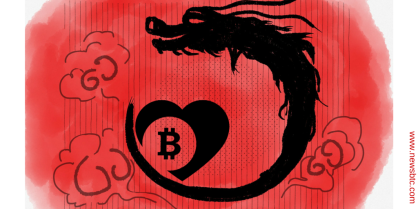Reason to trust

How Our News is Made
Strict editorial policy that focuses on accuracy, relevance, and impartiality
Ad discliamer
Morbi pretium leo et nisl aliquam mollis. Quisque arcu lorem, ultricies quis pellentesque nec, ullamcorper eu odio.
“The Chinese government is surprisingly open about the cryptocurrencies”, says Roland Sun, the head legal expert for ZAFED and the Chinese crowdfunding platform DACx.
The Chinese government has maintained a lenient stance on Bitcoin and other cyrptocurrencies. While Hong Kong lawmakers used the MyCoin debacle to demand a ban on the digital currencies, the government refused to shut down Bitcoin shops and continues to allow spot, futures and derivatives trading on Bitcoin and like currencies on numerous exchanges. The regulatory authorities are much more relaxed in China than their counterparts in US, where most of the cryptocurrencies are implicitly or clearly banned.

In recent months, entrepreneurs have also been granted complete freedom to experiment with leading business models with Bitcoin as a central currency. However, the business should not reek of a ponzi or any fraudulent scheme. The government intends to limit the risks posed by the cryptocurrencies and hence, has not yet lifted the ban on financial institutions and third-party payment processors from funding the digital industry. Any crisis in the much smaller Bitcoin industry can lead to financial troubles in the banking sector, which is facing a dangerous slowdown as the economy faces a severe downturn.
Credit must be given to the Chinese government which has come a long way from demanding a complete ban on the cryptocurrencies in 2013 to successfully nourishing backyard Bitcoin startups and exchanges. In the absence of proper regulatory framework governing Bitcoin and other digital currencies, the Hong Kong Monetary Authority (HKMA) reiterates its cautious stance, saying that “such investments may involve fraud or pyramid schemes, and people must exercise extra caution when considering making investments or payments in Bitcoin.” MyCoin offered its members luxury cars and cash benefits in exchange for more clients.
Taking all aspects into consideration, the Chinese government could do more to provide a fillip to the Bitcoin economy by at least removing the regulatory barriers which are constraining the rise of the currency.
Image: www.techinasia.com


























